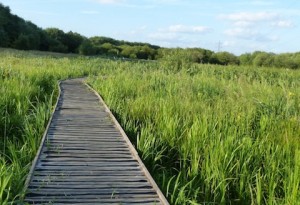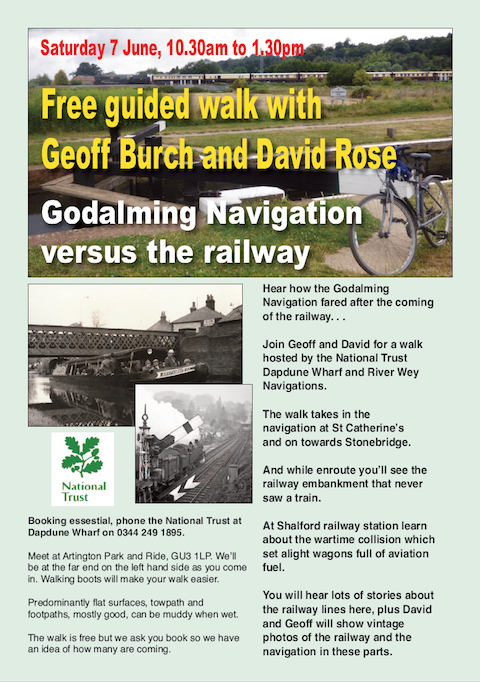 Abraham Lincoln
If given the truth, the people can be depended upon to meet any national crisis...
Abraham Lincoln
If given the truth, the people can be depended upon to meet any national crisis...
 Guildford news...
for Guildford people, brought to you by Guildford reporters - Guildford's own news service
Guildford news...
for Guildford people, brought to you by Guildford reporters - Guildford's own news service
Letter: I Have Not Been Impressed By The Parks Department
Published on: 27 Jul, 2016
Updated on: 27 Jul, 2016
From Paul Robinson
I’m not so impressed with their level of service of Guildford Borough Council’s parks team mentioned in the article: Guildford’s Parks Are Among The Best In The UK.
I use Riverside regularly and have had need to contact them on a couple of occasions and their response is poor.
A couple of years ago, after being stung by a hornet (it is very painful and took over a week to settle down), I phoned the Parks Department to report the nest, very close to one of the boardwalks. Their response was because it area was a nature reserve they wouldn’t do anything.
They stuck to this line even when I pointed out the site of the nest was just out of arms reach from a path used by small children and the risks of anaphylactic shock.
After a few days and two phone calls nothing had been done, so I finally put my concerns into an email pointing out that I wanted to place my report on record just in case there was a death from anaphylactic shock. The nest was removed within 24 hrs!
A week or so later I heard that a friend of mine had to spend a night in hospital after being stung – it was flashing blue light job for the ambulance.
A few weeks ago I again emailed the Parks Department to report giant hogweed (if you don’t know the dangers have a look on the interweb). They removed it after a couple of days but no acknowledgement to the email.
Finally, in the wet months when they drive vehicles over Riverside they leave deep ruts adjacent to the footpaths. I did discuss this with one of the wardens at the time and I was assured the ruts would be filled in. They are still there.
Responses to Letter: I Have Not Been Impressed By The Parks Department
Leave a Comment Cancel reply
Please see our comments policy. All comments are moderated and may take time to appear. Full names, or at least initial and surname, must be given.Recent Articles
- Thames Water Faces £122 Million Penalty Following Ofwat Inquiry
- New Knife Crime Strategy for Surrey Announced
- Public Asked for Views on SCC’s Proposal for Reduced Speed Limits
- Guildford Healthcare Staff Celebrated for Transformative Mental Health Support
- Will the Government Help Save Community Pubs? Asks Surrey MP
- A Lighthouse in the Centre of Town Showing the Way to Community
- Letter: SCC Directs Weedkilling Policy
- Library Gets Lottery Grant To Raise Awareness of Green Issues
- Story of Wartime Canadian Army Entertainment Unit Based at Down Place, Guildford
- Flashback: Around the Very Top: Slow Progress to Our First Remote Stop


Recent Comments
- J Holt on Millions of Taxpayer Money Recovered from Railway Fare Dodgers
- J Holt on Summary of GBC Planning Decisions – May 21, 2025
- Kit Collins on Letter: Is This the Ugliest Building in Guildford?
- Barbara Ford on Notice: Have a Blooming Picnic – June 7
- M Durant on Millions of Taxpayer Money Recovered from Railway Fare Dodgers
- Jim Allen on Letter: If GBC Wishes To Be Nature-friendly, Stop Spraying Weedkiller
Search in Site
Media Gallery
Dragon Interview: Local Artist Leaves Her Mark At One of England’s Most Historic Buildings
January 21, 2023 / No Comment / Read MoreDragon Interview: Lib Dem Planning Chair: ‘Current Policy Doesn’t Work for Local People’
January 19, 2023 / No Comment / Read MoreA3 Tunnel in Guildford ‘Necessary’ for New Homes, Says Guildford’s MP
January 10, 2023 / No Comment / Read More‘Madness’ for London Road Scheme to Go Ahead Against ‘Huge Opposition’, Says SCC Leader
January 6, 2023 / No Comment / Read MoreCouncillor’s Son Starts Campaign for More Consultation on North Street Plan
December 30, 2022 / No Comment / Read MoreCounty Council Climbs Down Over London Road Works – Further ‘Engagement’ Period Announced
December 14, 2022 / No Comment / Read MoreDragon Interview: GBC Reaction to the Government’s Expected Decision to Relax Housing Targets
December 7, 2022 / No Comment / Read MoreHow Can Our Town Centre Businesses Recover? Watch the Shop Front Debate
May 18, 2020 / No Comment / Read More













Dave Middleton
July 27, 2016 at 11:24 pm
It is quite possible for people who are sensitive to common bee or wasp stings to suffer from anaphylactic shock. Do you suggest that the parks department should exterminate every wasp or bee’s nest anywhere on the countryside estate, just in case?
Removal of the Hogweed within a couple of days is pretty good I’d say. So what if they didn’t respond directly to an email – they got on and did the job didn’t they?
As for the ruts, given the boggy nature of the ground, they will probably settle in anyway, but bearing in mind that the staff will probably have to drive over the ground again to carry out their maintenance duties, it would be pointless to fill the ruts in after every trip.
Its a wildlife and nature reserve, not an ornamental garden.
Harry Eve
July 28, 2016 at 12:48 pm
Well said.
Malcolm Fincham
July 28, 2016 at 3:56 pm
In respect to the hornets’ nest, sometimes I am left exasperated. It’s not as if we live in a land full of dangerous mammals, spiders and snakes.
I feel we should have all been educated at a young age about the birds and bees (and hornets too)and learned how to deal with situations. A large hornet colony captures several kilos of mostly annoying or even harmful insects through the season.
Click here to see what I wrote in my report at the time the nest was removed.
In my view, all are animals and insects have a place in this world; it is our interference that creates the problems.
Malcolm Fincham is The Dragon’s bird-watching columnist.
Paul Robinson
July 29, 2016 at 1:20 am
As a regular walker at Riverside I wasn’t even aware of the nest until the day I was stung when a hornet got caught in my sock. I was reluctant to call the council about the hornet nest as I also agree with the maxim ‘live and let live’ but this nest was so close to the board walk something had to be done about it.
It isn’t a matter of learning how to ‘deal with it’ if you are young. If you go into shock and your airway starts to close up and you start to suffocate all the lessons you learnt at your mothers knee aren’t going to help you. Riverside is not an area that is easy for paramedics to get to quickly and the air ambulance can’t get to you because of the high voltage pylons.
Harry Eve
July 29, 2016 at 10:56 am
Is there a way that people can be tested to see if they will suffer from anaphylactic shock – for example from insect stings or eating nuts? Is it practical for sufferers to carry an “epipen” to deal with rare accidents of this nature (and are there any downsides to using them)?
In all the years that I have been walking in the countryside, photographing insects, including hornets, as close as I can get, I have only suffered a bee or wasp sting once and that was by a bumblebee that I fell on in the school playground.
Maybe I am just lucky. I have suffered plenty of insect bites of course, but they go with the territory, and I was once chased by a hippopotamus which was quite worrying (not in Guildford [That’s good news. Although hippos in The Wey could be quite a tourist attraction. Ed]).
One thing to remember with wasps and hornets, especially when photographing them, is to be careful not to breathe on them on as they have a natural reaction to carbon dioxide, probably due to badgers being significant predators that attack their nests and dig them out if they can reach them.